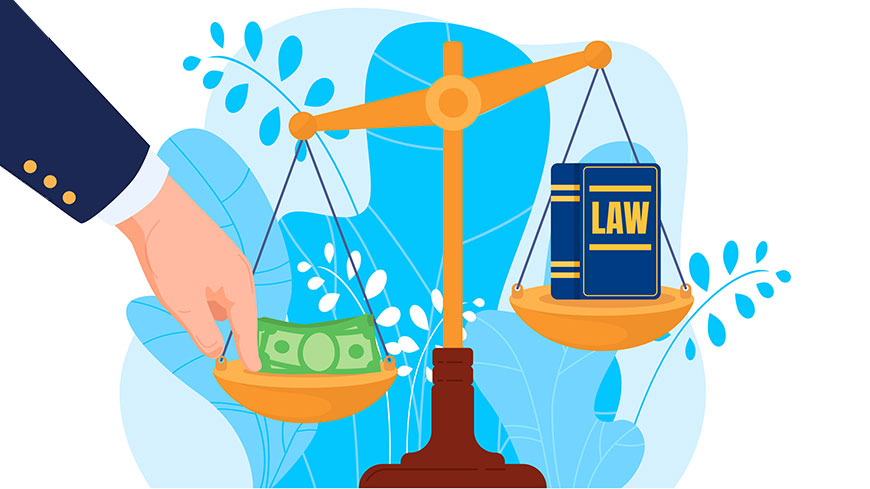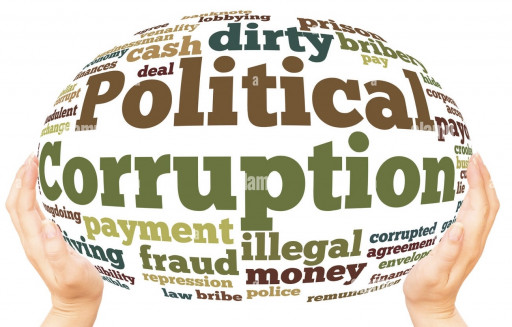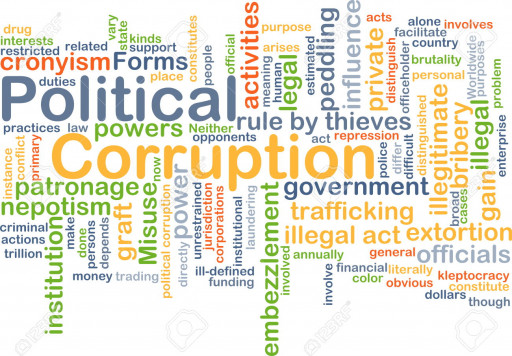Mechanisms to Curb Political Corruption in Bosnia and Herzegovina
Bosnia and Herzegovina, 2023: Completely devastated by corruption
According to the survey of the Corruption Perception Index (CPI) published by Transparency International (TI) for 2022. Bosnia and Herzegovina with a score of 34 on a scale of 0 to 100 is among the countries where the state of corruption is worsening the most. BiH is by far ranked the lowest in the region and third worst in Europe when it comes to the state of corruption in the country. Only Russia and Ukraine achieved a result worse than Bosnia and Herzegovina.
It is important to emphasize that Bosnia and Herzegovina is at a historically low level in terms of fighting against corruption and that ethnic divisions are hindering democratic institutions needed to fight corruption. Further, for years a number of important cases of organized crime and corruption including those involving high officials and politicians have not been processed in the judiciary.
There is a growing body of evidence emerging from the SKY and ANOM-derived investigations which suggests that politicians from across the political spectrum, as well as law enforcement and security service personnel, and prosecutors, have been working on behalf of organized criminal groups rather than on behalf of citizens.
Are safeguards against official political corruption strong and effective?
Corruption remains widespread and systemic, and legislation designed to combat the problem is poorly enforced. When corruption probes are actually opened, they rarely result in convictions. (In the report of the European Commission on BiH 2022, describes the situation in Bosnia and Herzegovina as widespread corruption and political capture directly affecting the daily life of citizens, and further underlines that "criminal justice policy and the legislative framework throughout the country is largely ineffective and inadequate for the fight against corruption.")
International Community & BiH's corruption in politics
The US administration has imposed sanctions on several Bosnian politicians and officials and a TV station for alleged corruption and for trying to destabilize Bosnia and Herzegovina, but experts said these measures alone might not do much to ease the country’s political crisis. (Sanctions implications: As a result of sanctions, all property and interests in property of the designated persons described above that are in the United States or in the possession or control of U.S. persons are blocked and must be reported to OFAC. In addition, any entities that are owned, directly or indirectly, individually or in the aggregate, 50 percent or more by one or more blocked persons are also blocked. All transactions by U.S. persons within (or transiting) the United States that involve any property or interests in property of designated or otherwise blocked persons are prohibited unless authorized by a general or specific license issued by OFAC, or exempt. The prohibitions include the making of any contribution or provision of funds, goods, or services by, to, or for the benefit of any blocked person, or the receipt of any contribution or provision of funds, goods, or services from any such person. In addition, financial institutions and other persons that engage in certain transactions or activities with the sanctioned entities and individuals may expose themselves to sanctions or be subject to an enforcement action.)
Political crises in BiH deepened and General Election 2022 in Bosnia and Herzegovina was a reflection of mentioned accompanied by a series of scandals involving theft of votes, election committees trafficking, and abuse of public resources.
Changing the election law on election night in October 2022 by High Representative H.E. Christian Schmidt, aimed at resolving the issues with reference to the federation government formation, came under different reactions among constituent peoples of BiH. H.E. Shmidt imposed changes to the country’s constitution and the criminal laws in April 2023 of Bosnia’s entities to facilitate the formation of the new regional government and prevent election fraud. Reminder: The High Representative of the international community in Bosnia and Herzegovina, H.E. Christian Schmidt has the power to change laws and to remove from office public officials who violate legal commitments or, in general, the DPA. (The General Framework Agreement for Peace in Bosnia and Herzegovina, also known as the Dayton Peace Agreement (DPA), Dayton Accords, Paris Protocol or Dayton-Paris Agreement, is the peace agreement reached at Wright-Patterson Air Force Base near Dayton, Ohio, United States, in November 1995, and formally signed in Paris on 14 December 1995. These accords put an end to the 3 1⁄2-year-long Bosnian War, one of the armed conflicts in the former Socialist Federative Republic of Yugoslavia. The current Constitution of Bosnia and Herzegovina is the Annex 4 of the DPA.)
In a new report, published in March 2023, the Council of Europe’s Group of States against Corruption (GRECO) calls on the authorities of Bosnia and Herzegovina to strengthen their efforts and overcome the political blockages that hold back certain reforms from taking place in order to prevent corruption amongst those with top executive functions (members of the Presidency and their Heads of Office and advisers, the Chair of the Council of Ministers, Ministers, Deputy Ministers and their Heads of Office and advisers) and members of the Border Police and State Investigation and Protection Agency (SIPA). In Bosnia and Herzegovina, presently, in terms of corruption prevention policies, there is a legal vacuum. In consequence of mentioned, GRECO calls for adopting an operational corruption prevention action plan based on a risk assessment, specifically targeting persons with top executive functions.
Effective mechanisms to curb political corruption in Bosnia and Herzegovina are following:
Promotion of transparency and accountability in public institutions of BiH
Through the adoption and implementation of robust anti-corruption legislation mentioned can be achieved. The government should enact laws that regulate the financing of political parties, establish clear rules on conflicts of interest, and protect whistleblowers.
Also, the government should strengthen the capacity of institutions responsible for enforcing anti-corruption laws, such as the State Investigation and Protection Agency (SIPA) and the Central Election Commission (CEC).
Securing an independent (and efficient) judiciary system
The judiciary system must be free from political influence and adequately resourced to investigate and prosecute corruption cases. The government must ensure that the judiciary system is staffed by competent and ethical judges, who are committed to upholding the rule of law, considering that the independence of the judiciary shall be guaranteed by the State.
Bosnia and Herzegovina should leverage technology to enhance transparency and accountability in public institutions
In particular, the government can use e-government solutions to make information on public procurement, budget allocation, and decision-making processes more accessible to the public. The indicated can improve public scrutiny and help detect and prevent corrupt practices.
Promotion of a culture of ethics and integrity
This involves raising awareness among citizens and public officials on the damaging effects of corruption on society and the importance of ethical conduct.
In campaigns to promote ethical conduct and transparency, civil society organizations, religious leaders, and media outlets could have a significant role and be engaged by the government. Moreover, the government can develop and implement codes of ethics for public officials and establish training programs to equip them with the skills and knowledge to avoid corrupt practices.
Establish and Implement clear guidance regarding conflicts of interest
Clear guidance regarding conflicts of interest and other integrity-related matters should be developed in a code of conduct for persons with top executive functions. The Agency for Prevention of Corruption and Coordination of the Fight against Corruption (APIK) should also be provided with adequate financial and human resources to perform its tasks effectively.
International cooperation
For Bosnia and Herzegovina is crucial to closely work with international organizations, such as the EU, the UN, and the Council of Europe, to combat corruption effectively and to ensure that the judiciary system is adequately funded and independent. International cooperation may include providing technical assistance, sharing best practices, facilitating cooperation between law enforcement agencies as well as providing financial assistance to strengthen and support civil society organizations working to promote transparency and accountability.
Political Corruption & Challenges to Democracy in Bosnia and Herzegovina
We have entered a period of global democratic recession. In BiH the indisputable interest of political elites in maintaining the status quo, which are acutely aware of their highly questionable legitimacy, leads to an increasingly pronounced growth of authoritarian tendencies, i. e. an increasingly repressive response to any criticism of the current situation.
In consideration of the above, sustainable actions against systemic political corruption are urgent as corruption remains a fundamental stumbling block, causing massive damage to the economy, citizens’ daily lives, and the political climate.
Action against political corruption will demonstrate commitment to the Rule of Law, and transparency will be a key to the European path and contribute to the safety and well-being of all citizens of Bosnia and Herzegovina.







